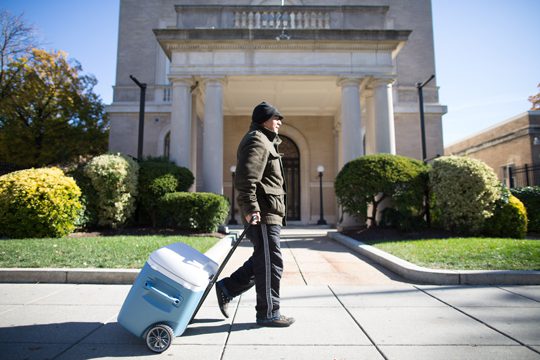Overview
The United States is a nation of immigrants. Throughout its history, people have moved here from all over the world and have contributed to their communities and our national life. Today, as in the past, immigrants are also creating prosperity for this nation.
Despite their contributions, many immigrants face discrimination and barriers to opportunity. This increases their likelihood of struggling with hunger and poverty. The national rate of household food insecurity is 12.7 percent, while the rate for households with undocumented immigrants is 24 percent. Undocumented migrant and seasonal workers face food insecurity rates as high as 65 percent.
Background
In 2012, in response to our broken immigration system, President Obama announced a new Department of Homeland Security policy called The Deferred Action for Childhood Arrivals, or DACA. DACA provides temporary relief and protection from removal as well as work authorization to young undocumented students and veterans who grew up in the United States. Many findings indicate that DACA has significantly helped undocumented youth achieve higher paying jobs and education while increasing their contribution to the local economy.
About the Bill
The Dream Act of 2017 would offer a path to permanent legal status for millions of undocumented immigrant youths. The bill passage is crucial given the fact that DACA’s future is uncertain. Recently, 10 attorneys general sent the U.S Attorney General Jeff Sessions a letter threatening to sue the Trump administration if the DACA program was not terminated by Sept. 5, 2017.
A pathway to citizenship under the Dream Act would ensure that Dreamers can continue to contribute to their communities through work, service, and schooling. The proposed legislation would provide Conditional Permanent Residency and employment authorization for eight years. Afterward, Dreamers could apply for Legal Permanent Residency and begin the application process for citizenship.
We urge all members of Congress to co-sponsor the Dream Act of 2017. Bread for the World will continue to support legislation, like the Dream Act, that strives for lasting solutions to our broken immigration system. To ultimately end hunger, achieving solutions that last is key.
Take Action on This Issue
Give “Dreamers” a Pathway to Citizenship. Urge your members of Congress to co-sponsor and support the bipartisan Dream Act of 2017



